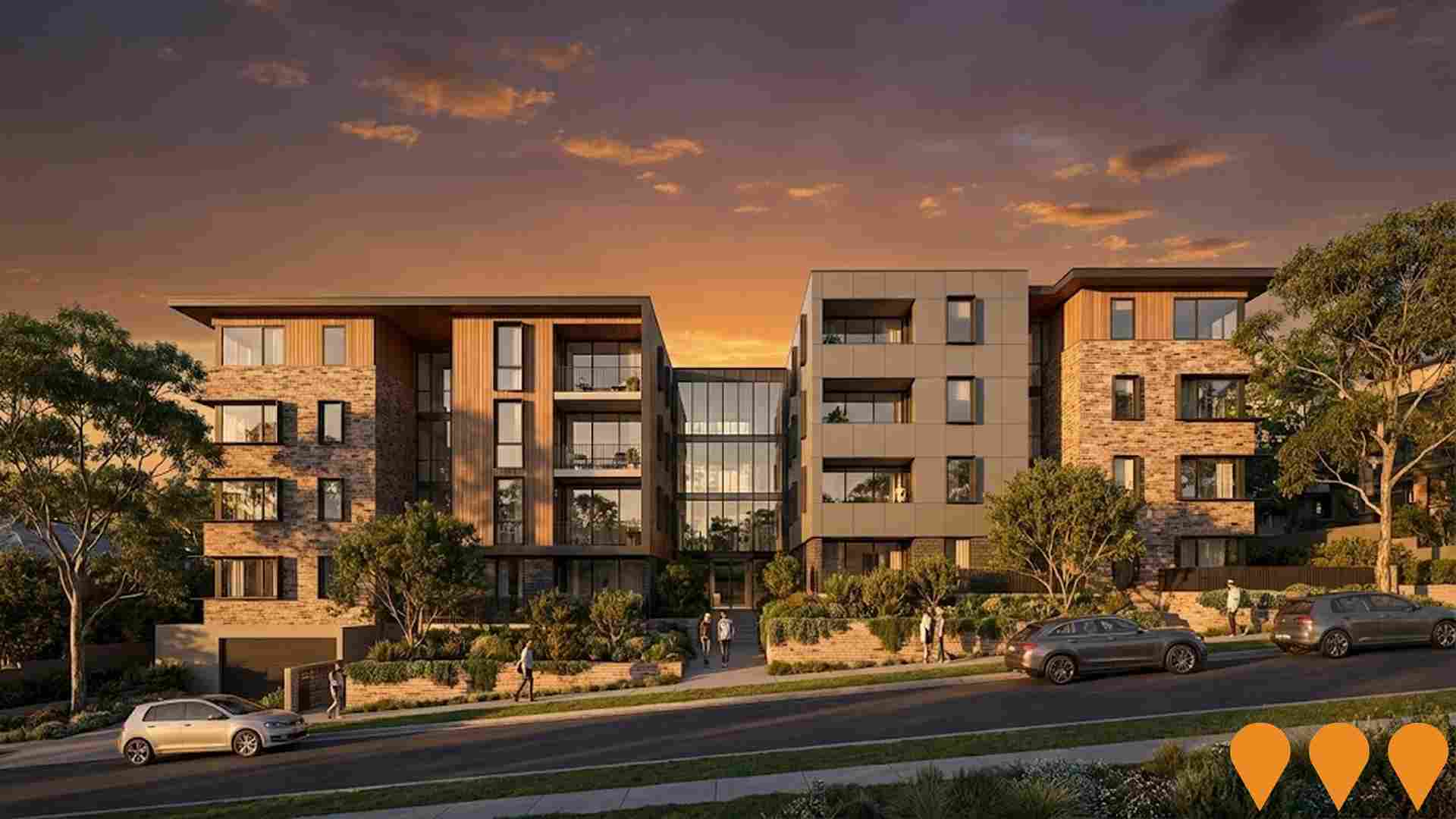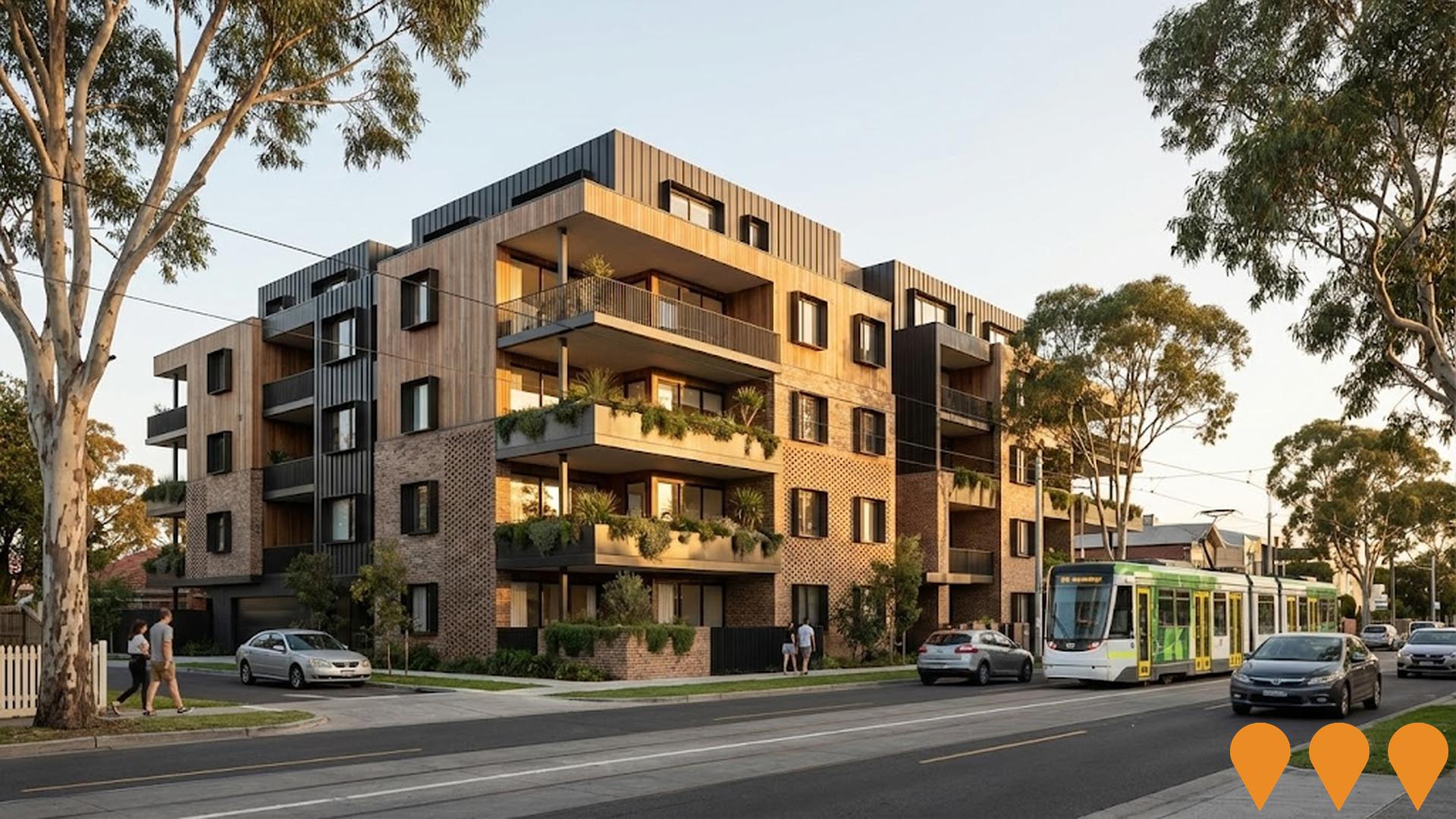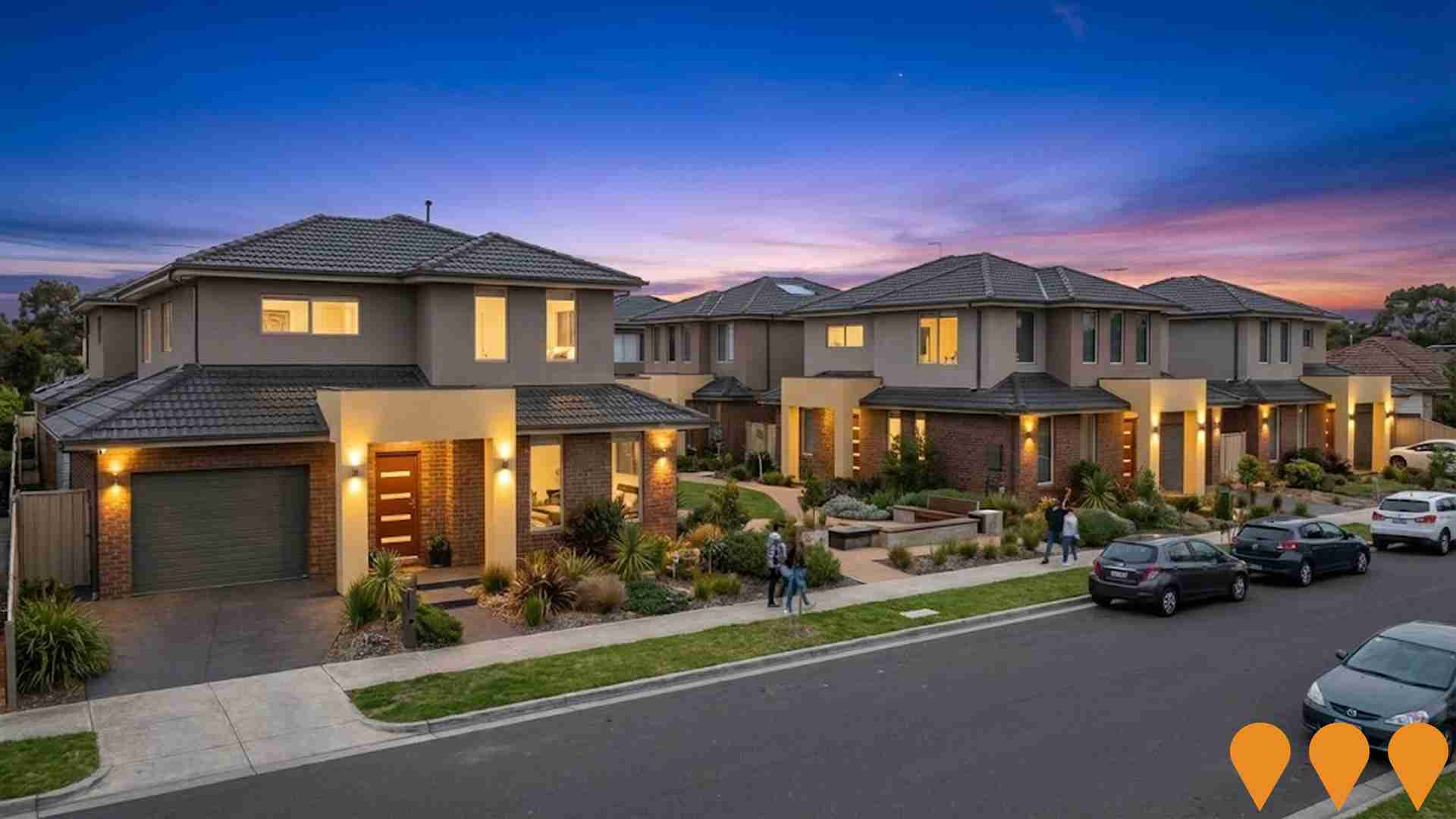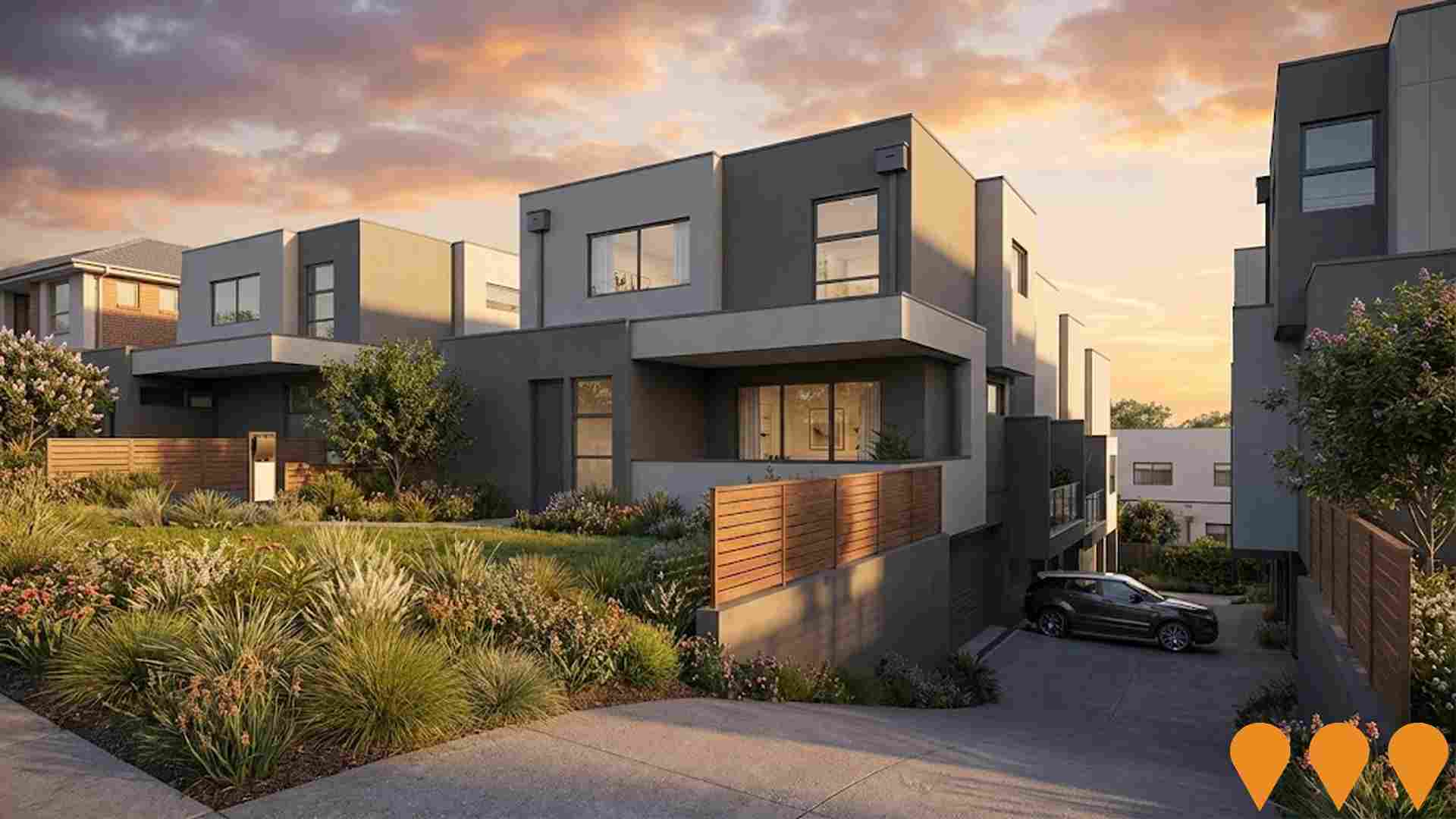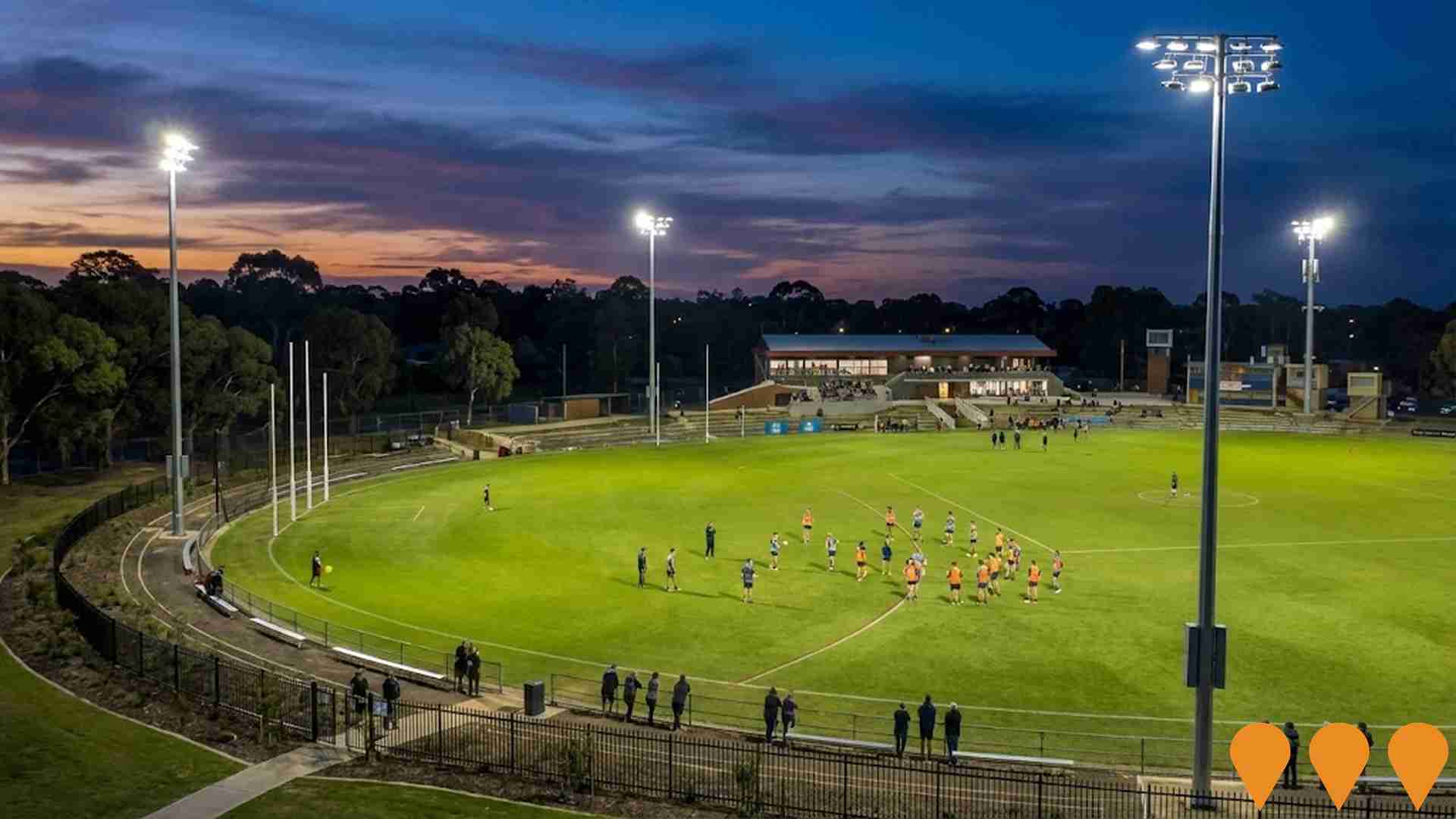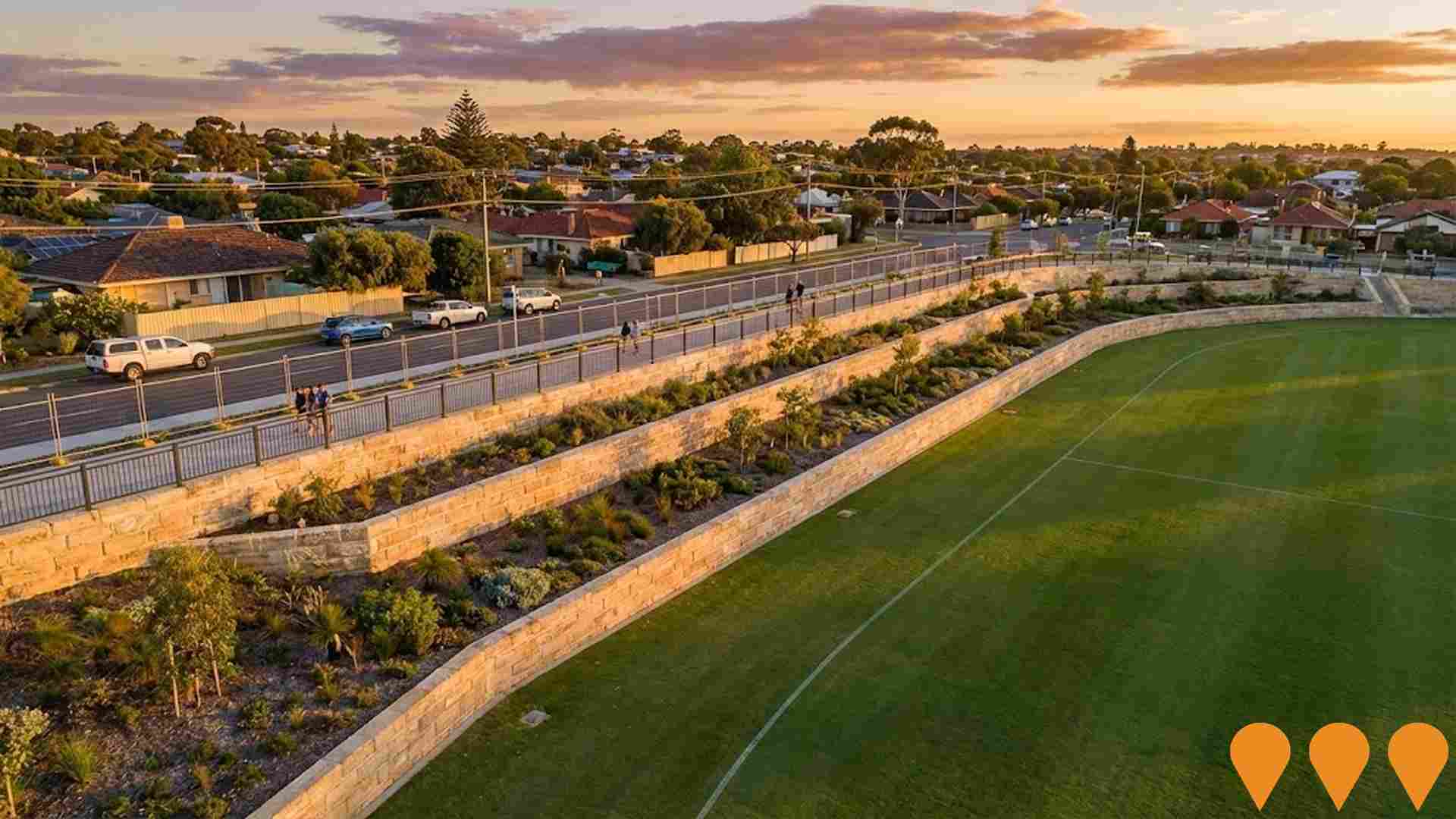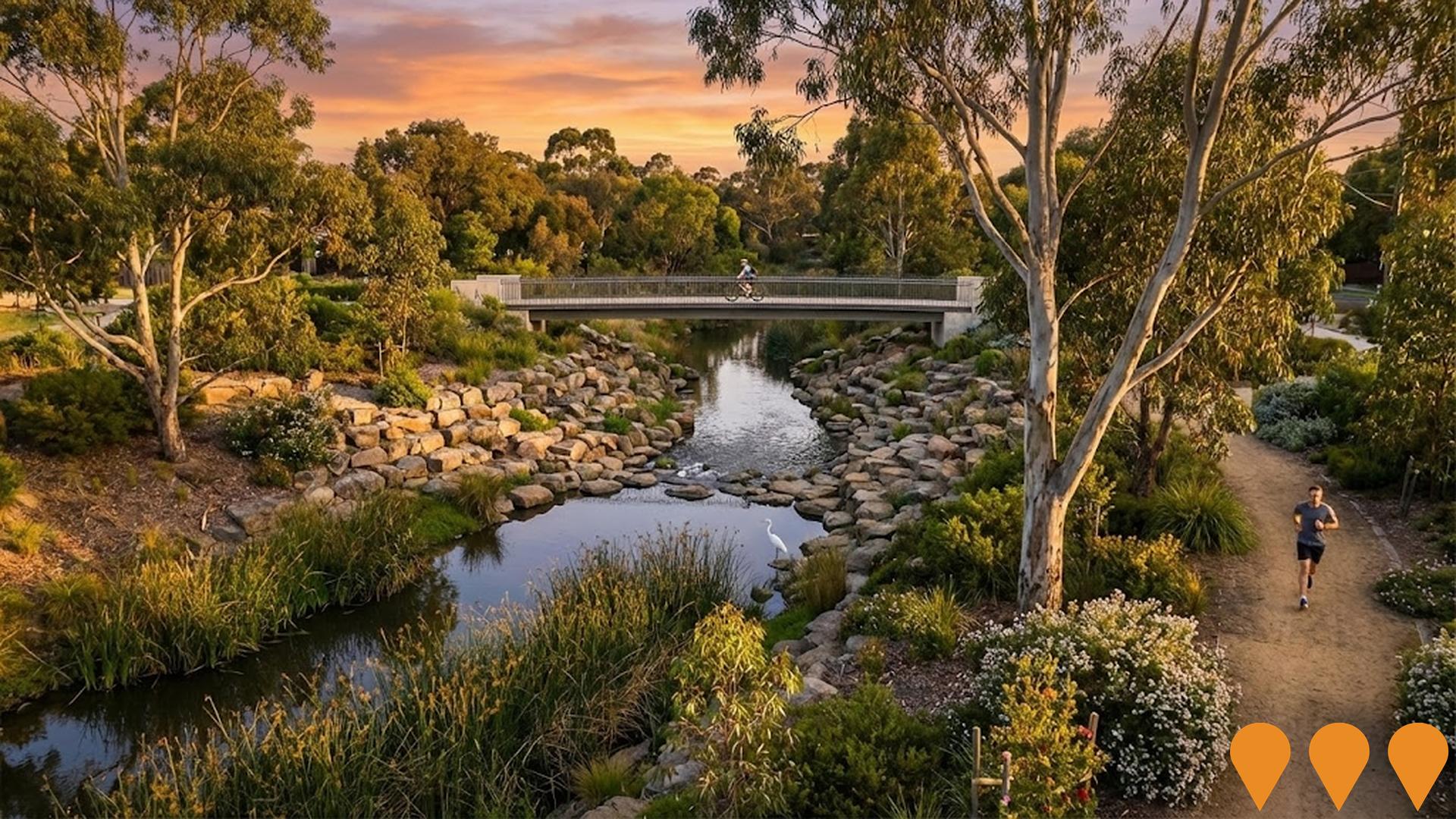Chart Color Schemes
This analysis uses ABS Statistical Areas Level 2 (SA2) boundaries, which can materially differ from Suburbs and Localities (SAL) even when sharing similar names.
SA2 boundaries are defined by the Australian Bureau of Statistics and are designed to represent communities for statistical reporting (e.g., census and ERP).
Suburbs and Localities (SAL) represent commonly-used suburb/locality names (postal-style areas) and may use different geographic boundaries. For comprehensive analysis, consider reviewing both boundary types if available.
est. as @ -- *
ABS ERP | -- people | --
2021 Census | -- people
Sales Activity
Curious about local property values? Filter the chart to assess the volume and appreciation (including resales) trends and regional comparisons, or scroll to the map below view this information at an individual property level.
Find a Recent Sale
Sales Detail
Population
Population growth drivers in Pascoe Vale South are above average based on AreaSearch's ranking of recent, and medium to long-term trends
Pascoe Vale South's population was approximately 10,834 as of November 2025. This figure represents an increase of 444 people since the 2021 Census, which recorded a population of 10,390. The change is inferred from ABS data showing an estimated resident population of 10,869 in June 2024 and an additional 49 validated new addresses after the Census date. This results in a population density ratio of 3,623 persons per square kilometer, placing Pascoe Vale South in the upper quartile relative to national locations assessed by AreaSearch. Recent population growth was primarily driven by overseas migration, contributing approximately 79.2% of overall population gains.
AreaSearch uses ABS/Geoscience Australia projections for each SA2 area, released in 2024 with a base year of 2022. For areas not covered by this data, AreaSearch utilises VIC State Government's Regional/LGA projections from 2023, adjusting using weighted aggregation methods to the SA2 level. Growth rates by age group are applied across all areas for years 2032 to 2041. Future population projections indicate a significant increase in Pascoe Vale South's top quartile of national statistical areas, with an expected growth of 3,999 persons by 2041 based on the latest annual ERP population numbers, reflecting a total increase of 37.2% over the 17-year period.
Frequently Asked Questions - Population
Development
Residential development activity is lower than average in Pascoe Vale South according to AreaSearch's national comparison of local real estate markets
Pascoe Vale South has seen approximately 47 new homes approved annually over the past five financial years, totalling 236 homes. As of FY2025-26, 11 approvals have been recorded. Despite a decrease in population during this period, development activity has been relatively adequate, benefiting buyers while new properties are constructed at an average expected construction cost value of $489,000, indicating targeting of the premium market segment with higher-end properties. In FY2025-26, $2.4 million in commercial development approvals have been recorded, suggesting limited focus on commercial development.
Compared to Greater Melbourne, Pascoe Vale South has markedly lower building activity, recording 60.0% below the regional average per person, which generally supports stronger demand and values for established properties. Recent construction comprises 45.0% detached dwellings and 55.0% attached dwellings, focusing on higher-density living to create more affordable entry points suitable for downsizers, investors, and first-home buyers, marking a significant departure from the current housing pattern of 80.0% houses. With approximately 238 people per dwelling approval, Pascoe Vale South shows characteristics of a low density area. According to AreaSearch's latest quarterly estimate, Pascoe Vale South is forecasted to gain 4,034 residents by 2041. If current development rates continue, housing supply may not keep pace with population growth, potentially increasing competition among buyers and supporting stronger price growth.
Population forecasts indicate Pascoe Vale South will gain 4,034 residents through to 2041 (from the latest AreaSearch quarterly estimate). If current development rates continue, housing supply may not keep pace with population growth, potentially increasing competition among buyers and supporting stronger price growth.
Frequently Asked Questions - Development
Infrastructure
Pascoe Vale South has emerging levels of nearby infrastructure activity, ranking in the 38thth percentile nationally
Twenty-one projects have been identified by AreaSearch that could impact the area's performance. Key projects include Napier Park Masterplan and Community Hub (scheduled for completion in late 2025), York Street Park and Mixed-Use Development (commenced in April 2023), Pascoe Vale South Urban Renewal Project (expected to start construction in early 2024), Tram Route 55 Power Substation upgrade (planned for completion by mid-2026), and the 320 Reynard Street Development (approved in March 2022). The following list details those projects likely to be most relevant.
Professional plan users can use the search below to filter and access additional projects.
INFRASTRUCTURE SEARCH
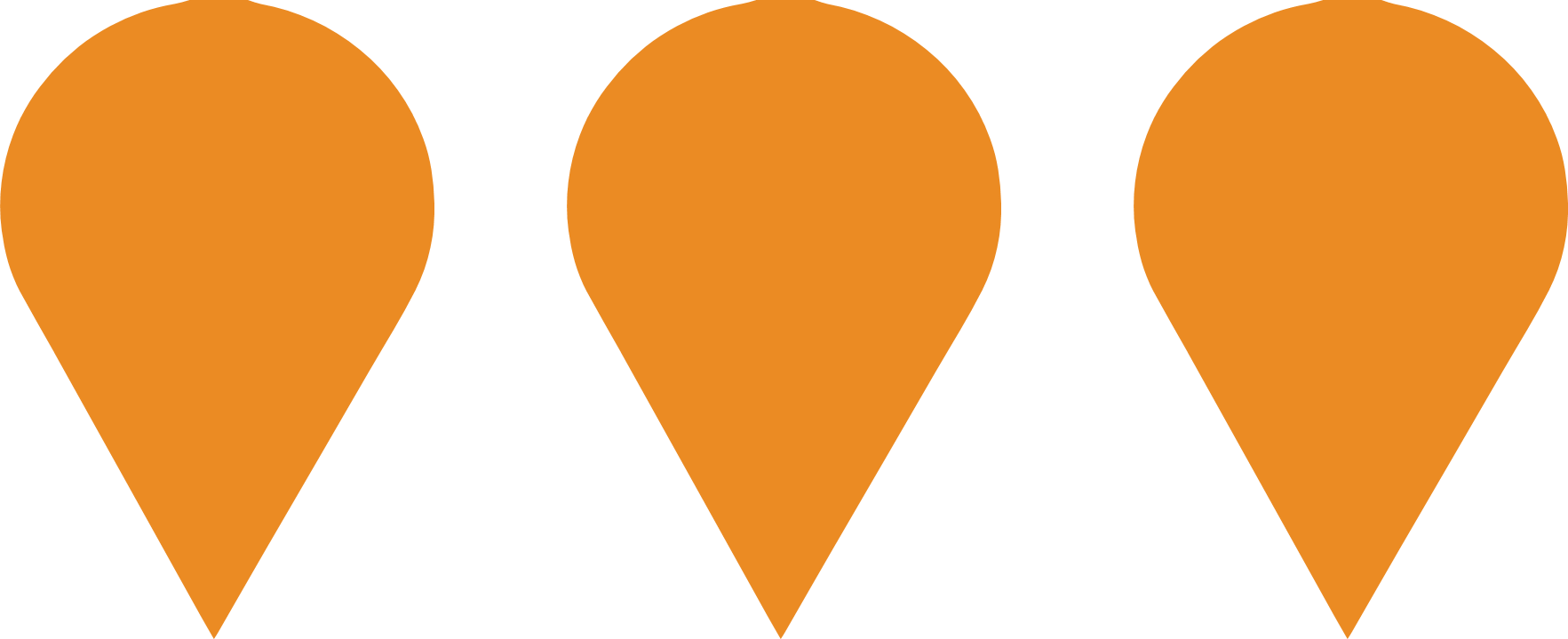 Denotes AI-based impression for illustrative purposes only, not to be taken as definitive under any circumstances. Please follow links and conduct other investigations from the project's source for actual imagery. Developers and project owners wishing us to use original imagery please Contact Us and we will do so.
Denotes AI-based impression for illustrative purposes only, not to be taken as definitive under any circumstances. Please follow links and conduct other investigations from the project's source for actual imagery. Developers and project owners wishing us to use original imagery please Contact Us and we will do so.
Frequently Asked Questions - Infrastructure
York Street Park and Mixed-Use Development, Pascoe Vale South
Comprehensive redevelopment of a 6,634m2 site, divided into two parts: approximately 2,500m2 for a new fully-fenced public park (York Street Park) as part of the 'A Park Close to Home' initiative, and the remainder (approximately 6,634m2) for subdivision and sale for potential mixed-use development (residential, retail, or office). Park construction began in August 2025 and is scheduled for completion in December 2025. Council is also seeking community feedback on the proposed sale of the remaining Bell Street land.
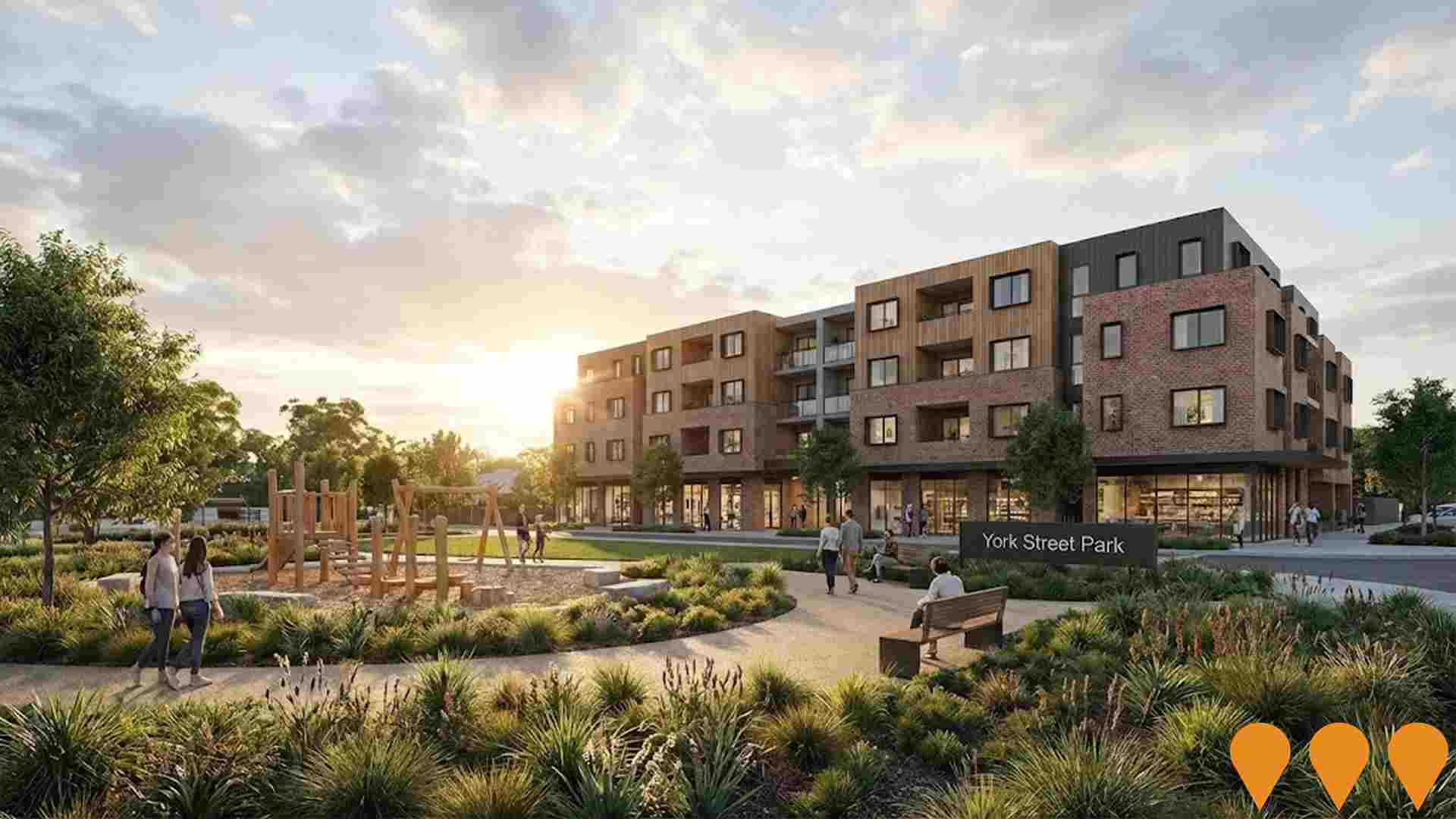
Bell Street to Moreland Level Crossing Removal
Major infrastructure project removing dangerous level crossing at Bell Street and Moreland Road intersection. Construction of road bridge over railway line, improved traffic flow, enhanced pedestrian and cycling infrastructure, and upgraded public transport connectivity.
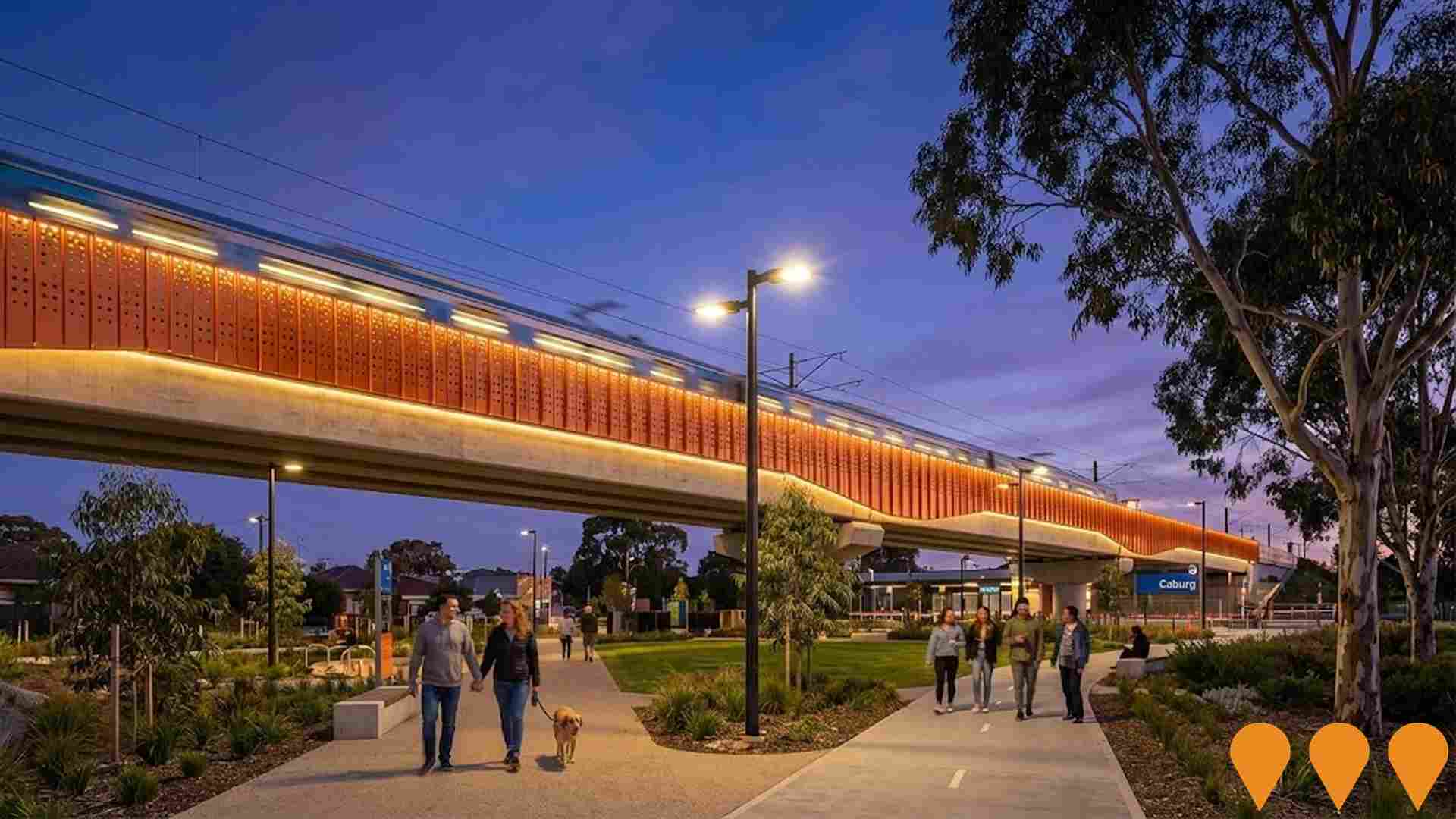
299 Pascoe Vale Road Mixed-Use Development
Multi-stage mixed-use development embracing the 20-minute neighbourhood concept. Stage 1 includes 6-storey mixed-use building with 25,000sqm retail, supermarkets, cinema, entertainment facilities, premium gym, medical centre, veterinary centre, childcare centre, and 20,000sqm car parking. Stage 2 features 2 residential buildings ranging from 7 storeys facing Pascoe Vale Road to 11 storeys facing rail corridor. The development includes green plaza, sustainable elements like solar PV, rainwater harvesting, and EV charging stations.
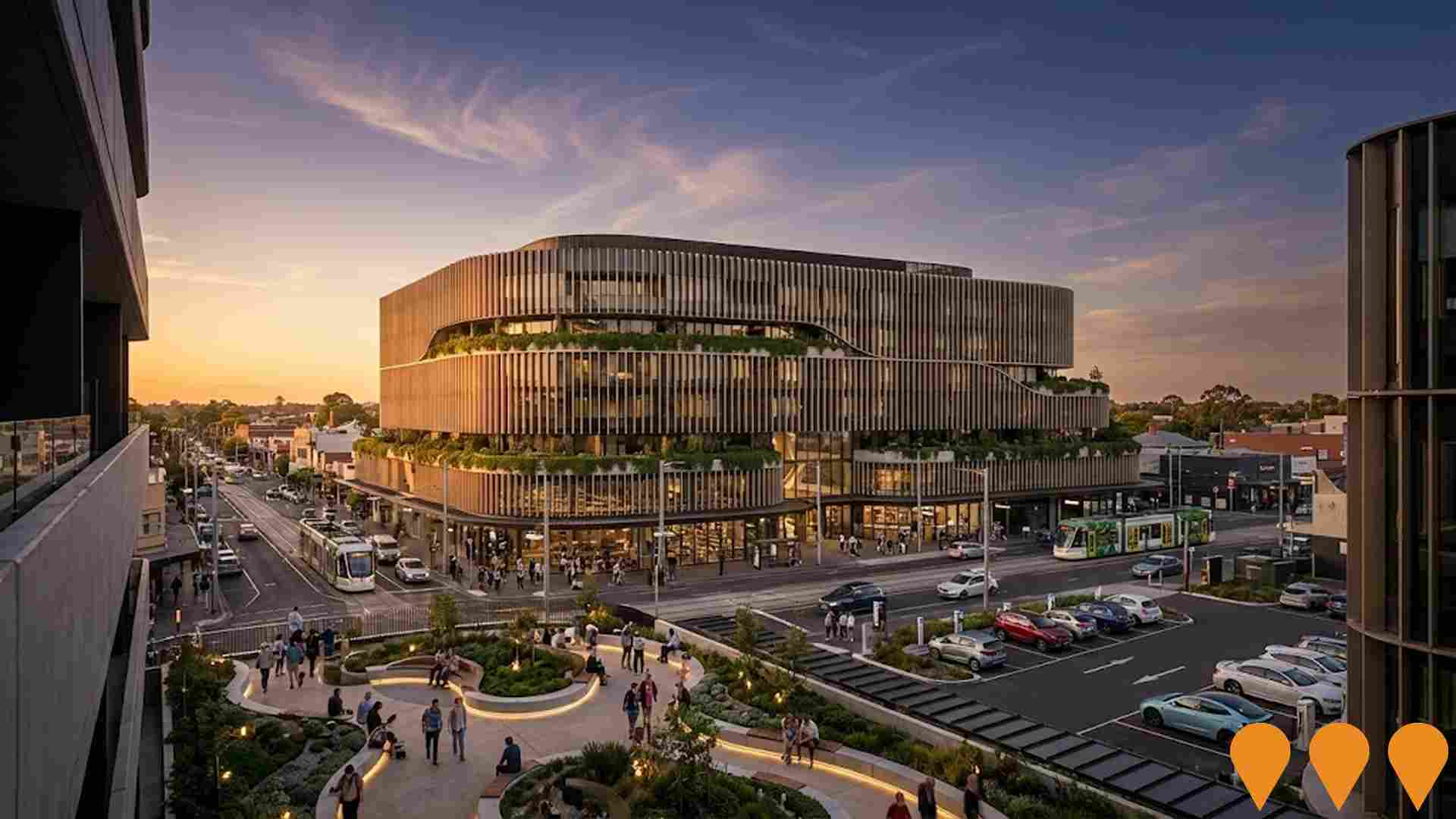
Napier Park Masterplan and Community Hub
Program of works to protect and enhance Napier Park's heritage Plains Grassy Woodland and improve local community facilities in the Loeman Street precinct. Recent stages have focused on stormwater harvesting and a new vegetated swale to support the river red gums and improve water quality before flows reach Five Mile Creek and Moonee Ponds Creek. Future stages are expected to deliver further landscape upgrades, paths and open space improvements that support a future community hub and early years facilities for nearby families.
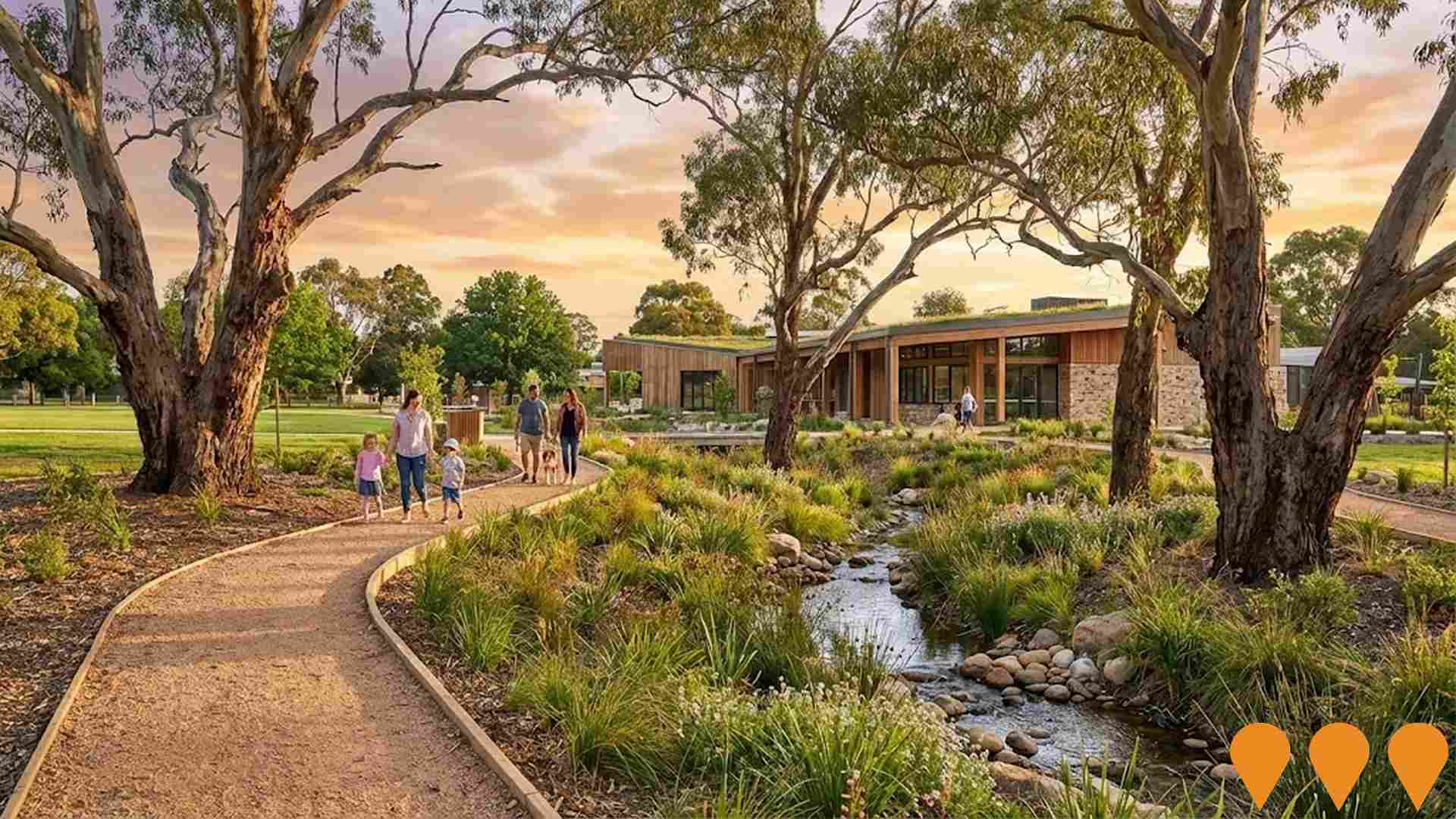
Love Sydney Road Beautification and Enhancement Program
Comprehensive community-driven streetscape improvement program along Sydney Road corridor. Enhanced pedestrian amenities, street furniture, public art installations, improved lighting, landscaping, cycling infrastructure, and support for local businesses through facade improvements and activation initiatives. Aims to strengthen the vibrant multicultural character of the strip.

York Street Park - A Park Close to Home (Pascoe Vale South)
Council is delivering a new local park of about 2,500 m2 at the corner of York Street and Westgate Street as part of Merri-bek's A Park Close to Home program. Demolition and consultation were completed through 2024, detailed design and tendering ran into early 2025, and construction commenced July 2025. The final design includes a grassed kick-about area, shaded play spaces, shelters, seating, paths, drinking fountain and extensive planting. Opening is scheduled for December 2025, subject to weather and program.
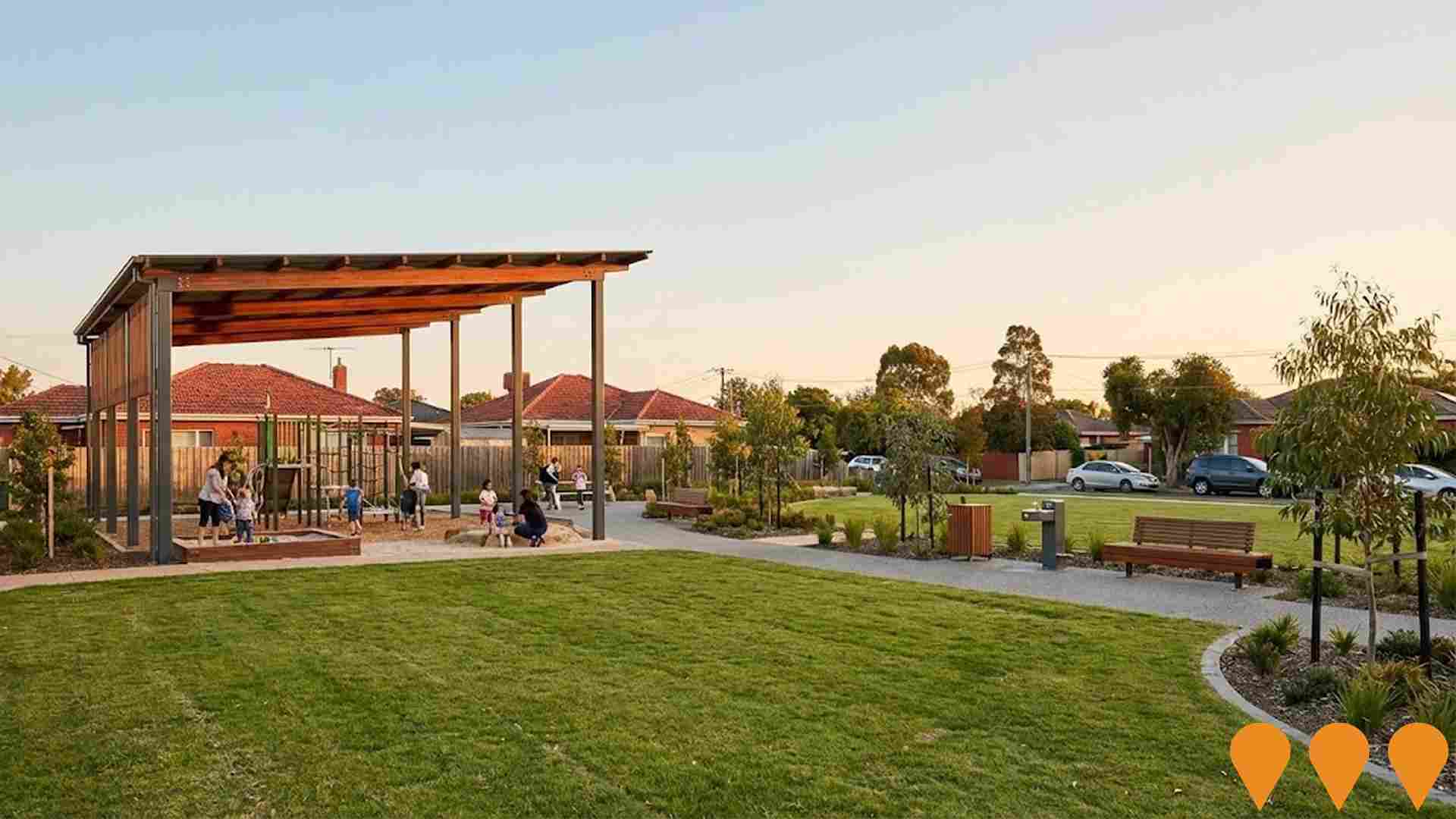
Tram Route 55 Power Substation
Critical electrical infrastructure upgrade to support enhanced tram services on Route 55. Installation of modern power distribution equipment, improved reliability for public transport network, and integration with existing electrical systems.

320 Reynard Street Development
Residential development project featuring modern apartment living in established neighborhood setting. Contemporary architectural design, quality finishes, private outdoor spaces, and proximity to local amenities including parks, schools, and public transport.
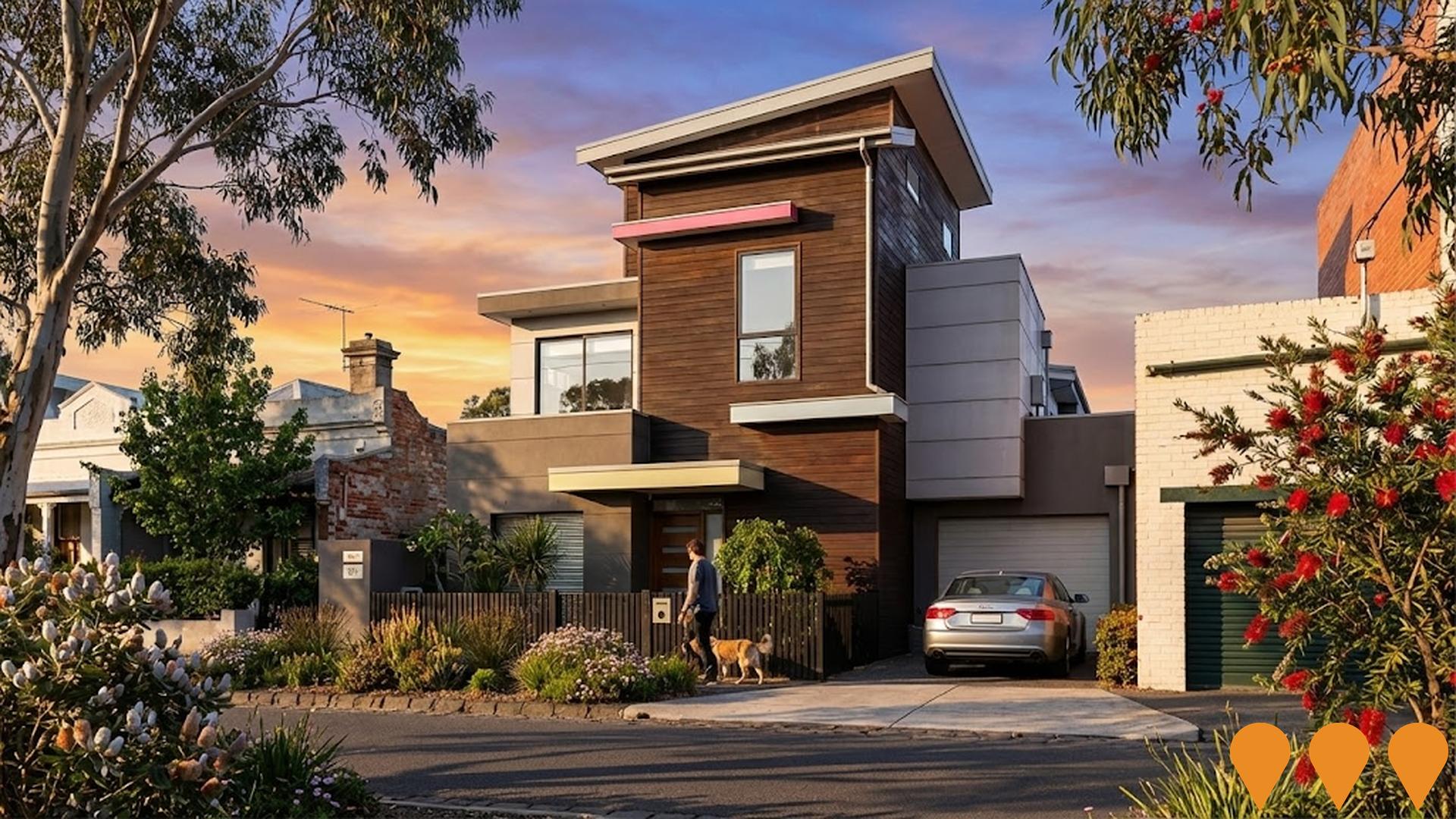
Employment
Employment performance in Pascoe Vale South has been broadly consistent with national averages
Pascoe Vale South has a highly educated workforce with strong representation in professional services. Its unemployment rate is 4.5%.
In the past year, there was an estimated employment growth of 4.8%. As of September 2025, 6,257 residents are employed, with an unemployment rate of 4.5%, which is 0.2% below Greater Melbourne's rate of 4.7%. Workforce participation in Pascoe Vale South is 68.6%, compared to Greater Melbourne's 64.1%. Employment is concentrated in health care & social assistance, education & training, and professional & technical services, with a notable concentration in education & training at 1.3 times the regional average.
Manufacturing employment is under-represented, at 5.1% compared to Greater Melbourne's 7.2%. Between September 2024 and September 2025, employment levels increased by 4.8%, while labour force increased by 4.8%, keeping the unemployment rate relatively stable. In contrast, Greater Melbourne experienced employment growth of 3.0% and labour force growth of 3.3%. By November 25, 2025, Victoria's employment grew by 1.13% year-on-year, with an unemployment rate of 4.7%, compared to the national rate of 4.3%. National employment forecasts from May-25 suggest a growth of 6.6% over five years and 13.7% over ten years. Applying these projections to Pascoe Vale South's employment mix suggests local employment should increase by 6.7% over five years and 13.8% over ten years.
Frequently Asked Questions - Employment
Income
Income metrics indicate excellent economic conditions, with the area achieving higher performance than 75% of national locations assessed by AreaSearch
Pascoe Vale South SA2 has a high national income level according to latest ATO data aggregated by AreaSearch for financial year 2022. The median income among taxpayers is $62,879 and the average income stands at $76,794. These figures compare to Greater Melbourne's of $54,892 and $73,761 respectively. Based on Wage Price Index growth of 12.16% since financial year 2022, current estimates would be approximately $70,525 (median) and $86,132 (average) as of September 2025. Census data reveals household, family and personal incomes all rank highly in Pascoe Vale South, between the 74th and 80th percentiles nationally. Income analysis shows that 30.4% of locals (3,293 people) fall into the $1,500 - 2,999 income category, consistent with broader trends across the region showing 32.8% in the same category. Economic strength is evident through 36.2% of households achieving high weekly earnings exceeding $3,000, supporting elevated consumer spending. After housing costs, residents retain 87.0% of income, reflecting strong purchasing power. The area's SEIFA income ranking places it in the 8th decile.
Frequently Asked Questions - Income
Housing
Pascoe Vale South is characterized by a predominantly suburban housing profile, with above-average rates of outright home ownership
Pascoe Vale South's dwelling structures, as per the latest Census, consisted of 80.4% houses and 19.6% other dwellings (semi-detached, apartments, 'other' dwellings), compared to Melbourne metro's 46.2% houses and 53.8% other dwellings. Home ownership in Pascoe Vale South was at 37.7%, with mortgaged dwellings at 37.9% and rented ones at 24.4%. The median monthly mortgage repayment in the area was $2,167, higher than Melbourne metro's average of $2,149. The median weekly rent figure stood at $421, slightly above Melbourne metro's $418. Nationally, Pascoe Vale South's mortgage repayments were significantly higher than the Australian average of $1,863, while rents were substantially above the national figure of $375.
Frequently Asked Questions - Housing
Household Composition
Pascoe Vale South features high concentrations of group households, with a higher-than-average median household size
Family households constitute 74.2% of all households, consisting of 40.6% couples with children, 22.6% couples without children, and 9.7% single parent families. Non-family households comprise the remaining 25.8%, with lone person households at 21.6% and group households making up 4.1%. The median household size is 2.7 people, larger than Greater Melbourne's average of 2.3.
Frequently Asked Questions - Households
Local Schools & Education
The educational profile of Pascoe Vale South exceeds national averages, with above-average qualification levels and academic performance metrics
The area's university qualification rate is 40.0%, significantly lower than the SA4 region average of 57.1%. Bachelor degrees are most prevalent at 25.6%, followed by postgraduate qualifications (9.8%) and graduate diplomas (4.6%). Vocational pathways account for 24.4% of qualifications among those aged 15+, with advanced diplomas at 10.4% and certificates at 14.0%. Educational participation is high, with 30.1% of residents currently enrolled in formal education.
This includes 9.8% in primary education, 8.0% in secondary education, and 6.7% pursuing tertiary education.
Frequently Asked Questions - Education
Schools Detail
Nearby Services & Amenities
Transport
Transport servicing is high compared to other areas nationally based on assessment of service frequency, route connectivity and accessibility
Transport analysis shows 41 active stops operating in Pascoe Vale South. These include light rail and bus services. Eleven routes serve these stops, providing a total of 6,233 weekly passenger trips.
Transport accessibility is rated good, with residents typically located 203 meters from the nearest stop. Services run an average of 890 trips per day across all routes, equating to approximately 152 weekly trips per individual stop.
Frequently Asked Questions - Transport
Transport Stops Detail
Health
The level of general health in Pascoe Vale South is notably higher than the national average with prevalence of common health conditions low among the general population though higher than the nation's average across older, at risk cohorts
Pascoe Vale South shows better-than-average health outcomes, with lower prevalence of common conditions among its general population compared to national averages.
However, it has a higher rate of private health cover at approximately 58% (~6,262 people). The most prevalent medical conditions are mental health issues (7.7%) and asthma (7.5%). A total of 71.9% of residents report no medical ailments, compared to Greater Melbourne's 68.5%. The area has a higher proportion of seniors aged 65 and over at 15.3% (1,658 people), compared to Greater Melbourne's 12.1%. Health outcomes among seniors require more attention than those in the broader population.
Frequently Asked Questions - Health
Cultural Diversity
The level of cultural diversity witnessed in Pascoe Vale South was found to be above average when compared nationally for a number of language and cultural background related metrics
Pascoe Vale South, surveyed in August 2016, had a higher proportion of overseas-born residents at 23.4%, compared to the majority of local markets. In this suburb, 29.3% spoke languages other than English at home. Christianity was the predominant religion, with 57.0% adherents, contrasting with Greater Melbourne's 35.3%.
The top three ancestry groups were English (17.4%), Australian (17.0%), and Italian (17.0%), significantly higher than the regional average of 10.2%. Notably, Greek residents comprised 8.4%, over twice the regional average of 5.1%. Maltese residents made up 1.7% compared to the region's 0.9%, while Lebanese residents constituted 1.7%, slightly lower than the regional figure of 1.9%.
Frequently Asked Questions - Diversity
Age
Pascoe Vale South's population aligns closely with national norms in age terms
The median age in Pascoe Vale South is 39 years, which is higher than Greater Melbourne's average of 37 and close to the national average of 38. The 55-64 age cohort is over-represented at 12.9% compared to Greater Melbourne's average, while the 25-34 age group is under-represented at 12.6%. According to post-2021 Census data, the 15-24 age group has increased from 12.1% to 13.2%, and the 5-14 cohort has decreased from 13.0% to 12.0%. By 2041, population forecasts indicate significant demographic changes in Pascoe Vale South. Notably, the 45-54 age group is projected to grow by 49%, adding 766 people and reaching a total of 2,332 from its current figure of 1,565.
